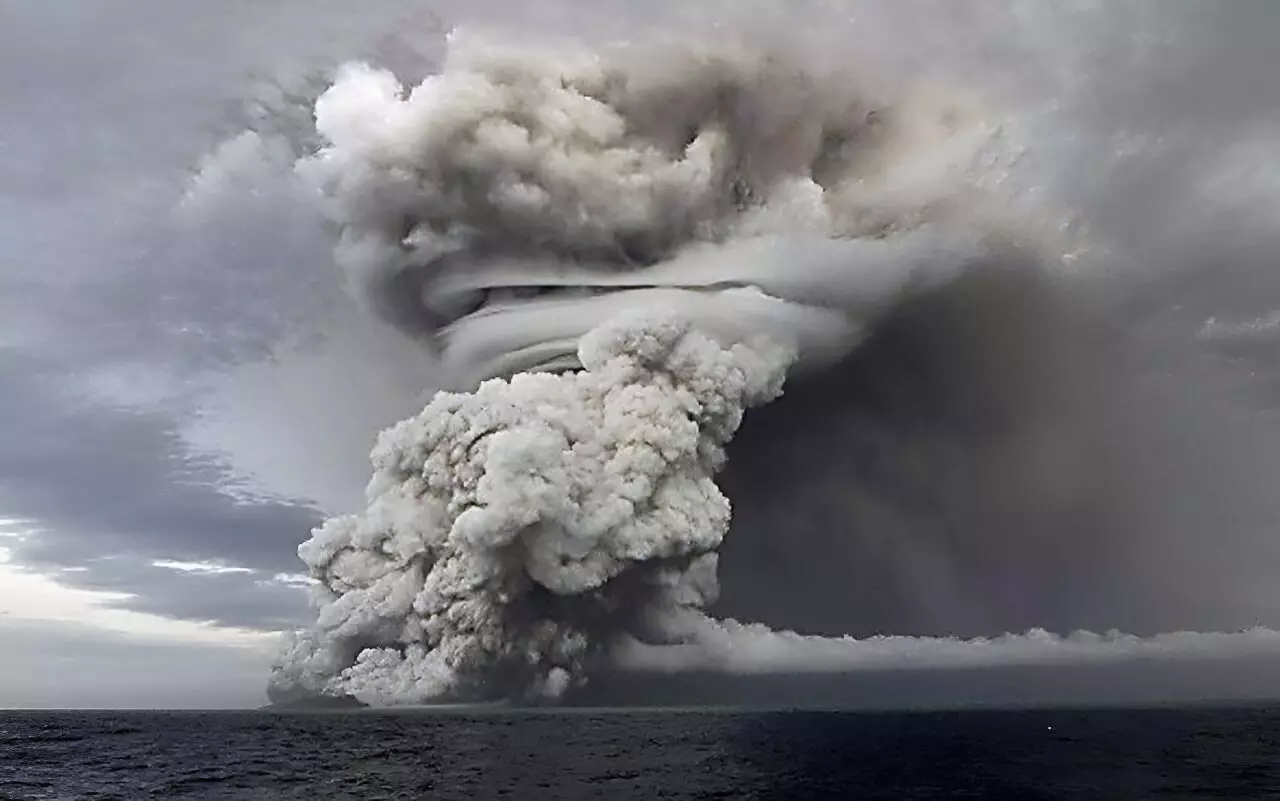The recent research conducted by a team led by Texas A&M University atmospheric scientist Dr. Andrew Dessler delves into the climate impact of the 2022 Hunga Tonga volcano eruption. This event, which took place in mid-January 2022, injected significant amounts of volcanic aerosols and water vapor into the atmosphere. Traditionally, large volcanic eruptions have led to cooling effects on the global climate by blocking sunlight with aerosols. However, the unique nature of the Hunga Tonga eruption has challenged some existing assumptions about its impact.
The Challenge of the Water Vapor Factor
Unlike previous major volcanic events, where the primary impact was due to volcanic aerosols blocking sunlight, Hunga Tonga introduced a substantial amount of water vapor into the stratosphere. This water vapor, being a potent greenhouse gas, raised initial speculation that it might have contributed to the extreme global warmth in 2023 and 2024. However, the team’s research has revealed a different outcome – the eruption actually contributed to cooling the Earth, similar to past volcanic events. This unexpected finding highlights the complexity of volcanic impacts on the climate system.
The research paper, titled “Evolution of the Climate Forcing During the Two Years after the Hunga Tonga-Hunga Ha’apai Eruption,” presents insights and analysis from Dr. Dessler, Dr. Mark Schoeberl, and other scientists from NASA. Their methodology involved analyzing satellite data observations to estimate the energy balance of the Earth’s climate system. The analysis indicated that the eruption led to more energy leaving the climate system than entering it, resulting in a slight cooling effect. This challenges the notion that the eruption was a significant factor in the recent warming trend.
Dr. Dessler emphasizes the importance of the research findings in shifting the focus towards human-induced greenhouse gas emissions as the primary driver of climate change. By dismissing the volcanic eruption as a major factor in recent warming, the study highlights the need to address misconceptions about the causes of global warming. Additionally, Dr. Schoeberl stresses the significance of investing in satellite-based measurements to enhance our understanding of stratospheric processes.
While the research provides valuable insights, it also raises new questions regarding the Hunga Tonga eruption. The unexpectedly low levels of sulfur dioxide and minimal impact on the 2023 ozone hole pose challenges for existing models. Furthermore, the persistence of water vapor in the stratosphere beyond predictions indicates gaps in our knowledge of stratospheric circulation. This underscores the need for continued research and accurate data to address the complexities of climate change.
The research on the climate impact of the 2022 Hunga Tonga volcano eruption offers valuable insights into the intricate dynamics of volcanic events and their effects on the climate system. By critically analyzing the findings, we can enhance our understanding of the complexities of climate change and the urgent need for sustained research efforts to tackle environmental challenges.


Leave a Reply